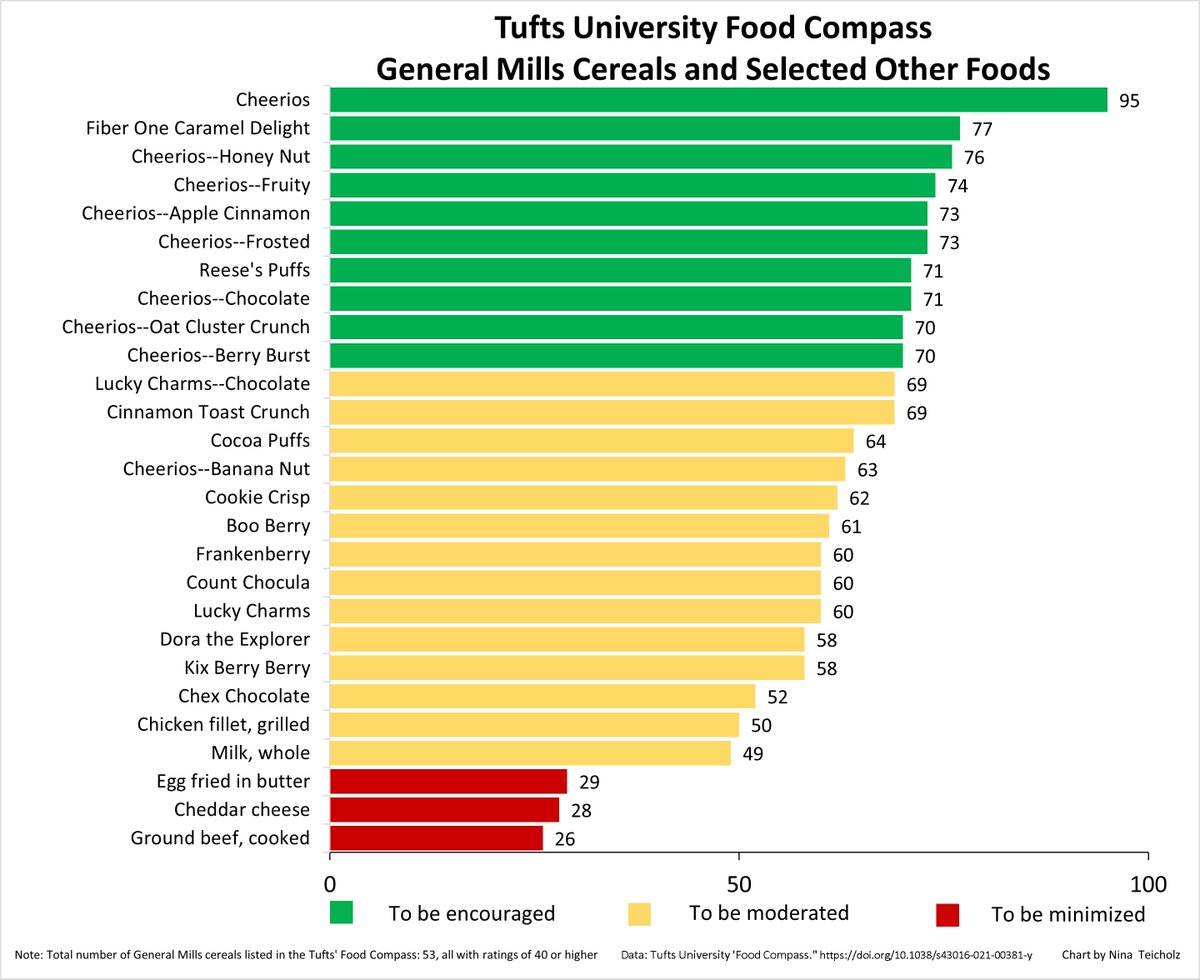
New chart from Tufts' new food ranking system.
53 General Mills cereals all healthier than cheddar cheese, milk, egg cooked in butter
Including:
Dora the Explorer, Berry Burst Cheerios, Count Chocola, Lucky Charms, Chex Chocolate.
(General Mills funds a Tufts Food Inst 🤨)
53 General Mills cereals all healthier than cheddar cheese, milk, egg cooked in butter
Including:
Dora the Explorer, Berry Burst Cheerios, Count Chocola, Lucky Charms, Chex Chocolate.
(General Mills funds a Tufts Food Inst 🤨)

2. Another chart:
MnMs, Reese's Peanut Butter Cup, Triscuits >> cheese or eggs
Lead author is Dean of Tufts Nutrition School, architect of White House Conf. on Nutrition & Health
We can't blame Americans for ill-health when this is our expert advice. Time to wake up.
MnMs, Reese's Peanut Butter Cup, Triscuits >> cheese or eggs
Lead author is Dean of Tufts Nutrition School, architect of White House Conf. on Nutrition & Health
We can't blame Americans for ill-health when this is our expert advice. Time to wake up.

3. Froot Loops, Cinnabon, Honey Smacks all >> eggs
Tufts is influential, advising White House, Congress on nutrition
Says its rating sys. should be used in policy, #ESG, “marketing to children”
We need honest advice on food
Support @4dietaryreform
unsettledscience.substack.com/p/tufts-food-c…
Tufts is influential, advising White House, Congress on nutrition
Says its rating sys. should be used in policy, #ESG, “marketing to children”
We need honest advice on food
Support @4dietaryreform
unsettledscience.substack.com/p/tufts-food-c…
• • •
Missing some Tweet in this thread? You can try to
force a refresh









